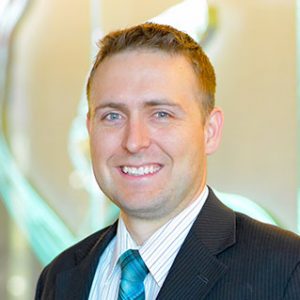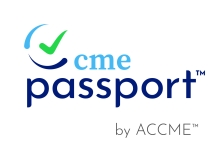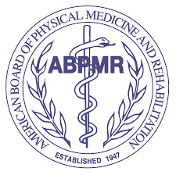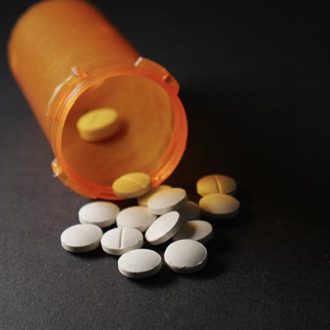OPIOIDS
Pain management with opioid, non-opioid, and non-pharmacological interventions
New Course for 2026-2027 Now Available!
Use and abuse of opioid has been a leading topic in the national news for several years. Education, training and the use of Naloxone are beginning to help change the trajectory of the epidemic of abuse. Further awareness and open discussions in the medical profession continue to be necessary to further protect our society from themselves.
Objectives
- Improve our understanding of appropriate opioid prescribing and
- Decrease opioid dependence, misuse, and overdose
Outline
- Achieving safe opioid use while improving patient care
- Assessing patients for opioid therapy
- Initiating therapy, modifying dose, & discontinuing use of opioid analgesics
- Managing therapy with opioid analgesics
- Counseling for the safe use of opioids
- General education for opioid prescriptions
- Specific education for opioid prescriptions
- Non-opioid alternatives for chronic pain management
Electives
- Pediatric considerations for opioid use
- Preventing opioid overdose death
- Medications for opioid use disorder
- Motivational interviewing
- Pregnancy and postpartum for people with opioid use disorders
- Dealing with the epidemic of neonatal opioid withdrawal syndrome
Doctors
Nurses
Medical Staff
Dentists
Social Workers
First Responders
Concerned Individuals
Pregnant Women
Subject Matter Experts

Camille Fung, MD

Michelle Accardi-Ravid, PhD

Bridger W. Bach, MD

Paula Cook, MD

Nicholas Cox, PharmaD

Kriss Gebauer, APRN, MSN

Carina M. Jackman, MD

Scott Junkins, MD

Dominic Moore, MD

Daniel Odell, MD

Jennifer Plumb, MD

Jill Sindt, MD

Marcela Smid, MD
Continuing Education
Pain management with opioid, non-opioid, and non-pharmacological interventions is approved for CME.
The core 4.0 hour course consists of units 1-8. There are an additional six elective courses that offer an additional 4.0 hours of CME. For controlled substance prescribers, you must claim CME credit at the end of the course to receive the DOPL required certificate of completion.
Other learners need to check with their regulatory groups regarding allowed credit.

MATE Act
Requirements for training for Medication Assistant Treatment as part of the MATE Act
On December 29, 2022, the Consolidated Appropriations Act of 2023 enacted a new one-time, eight-hour training requirement for all DEA registered practitioners on the treatment and management of patients with opioid or other substance use disorders. After June 27, 2023, practitioners will be required to check a box on their online DEA registration form (for both initial registration application and renewing registration) affirming that they have completed the new training requirement.
For our Utah practitioners, if you have completed the DOPL Controlled Substances (3.5+ hours) training at least 2 times previously, then you have already met this requirement. If you have attended any UU internal CME events in the past, such as Grand Rounds or Tumor Boards (TPC) where management of patients with opioid or other substance use disorders have been discussed for a total of 8 hours of credits, then you have already met this requirement.
If you feel that you have not met this requirement, or if you would like additional training, you can complete the University of Utah online Opioid Education for Utah Licensed Practitioners (which has a maximum of 8 hours of credit available) and the Screening, Brief Intervention, and Referral to Treatment (SBIRT) modules, which will meet the new requirements here: https://substanceei.com/
SBIRT is required for Utah controlled substance prescribers at some point, once, before their 2026 license renewal, per Utah DOPL regulations. So if you have completed the previous opioid training, you will still need to complete SBIRT before your next license renewal for the 2026 cycle.
If you are interested, more information on these new requirements can be found from the DOJ and DEA here: MATE_Training_Letter_Final.pdf (usdoj.gov)
The instructional content has been designed to comply with the Utah licensing opioid education requirement.
Accreditation:
The University Of Utah School Of Medicine is accredited by the Accreditation Council for Continuing Medical Education (ACCME) to provide continuing medical education for physicians.
AMA Credit:
The University of Utah School of Medicine designates this enduring activity for a maximum of 8.00 AMA PRA Category 1 Credit(s)™. Physicians should claim only the credit commensurate with the extent of their participation in the activity.
Speaker and Planning Committee Disclosure Summary:
The University of Utah School of Medicine Continuing Medical Education Office (UUCME) meets ACCME Standards for Integrity and Independence expectations regarding the identification and mitigation of relevant financial relationships with ACCME-defined ineligible companies. Everyone in control of content, including all speakers and planners, must disclose financial relationships in any amount within the past 24 months and any relevant financial relationships must be mitigated prior to the activity start.
Disclosure:
Neither planners, speakers, or anyone in control of content have any relevant financial relationships with an ACCME-defined ineligible company to disclose with the exception of Marcela Smid who has the following financial relationships: Gilead Sciences Inc (research funds). Organon (consultant, research support). All relevant financial relationships have been mitigated.
NONDISCRIMINATION AND DISABILITY ACCOMMODATION STATEMENT:
The University of Utah does not exclude, deny benefits to or otherwise discriminate against any person on the basis of race, color, national origin, ethnicity, sex, disability, age, veteran’s status, religion, gender identity, gender expression, pregnancy or pregnancy-related conditions, genetic information, or sexual orientation in admission to or participation in its programs and activities. Reasonable accommodations will be provided to qualified individuals with disabilities upon request, with reasonable notice. Requests for accommodations or inquiries or complaints about University nondiscrimination and disability/access policies may be directed to the Director, OEO/AA, Title IX/Section 504/ADA Coordinator, 383 University Street, Level One OEO Suite, Salt Lake City, UT 84112, 801-581-8365 (Voice/TTY), 801-585-5746 (Fax).



MOC Part II
Successful completion of this CME activity, which includes participation in the evaluation component, enables the participant to earn up to:
- 8.00 MOC points in the American Board of Internal Medicine’s (ABIM) Maintenance of Certification (MOC) program; and
- 8.00 MOC points in the American Board of Pediatrics’ (ABP)Maintenance of Certification (MOC) program; and
- 8.00 MOC Points in the American Board of Pathology Lifelong Learning (ABPath) and enables the participant to earn up to 1.0 Lifelong Learning (CME) credit in the American Board of Pathology (ABPath) Continuing Certification program.; and
- 8.00 MOC Points of their required annual part II self-assessment credit in the American Board of Otolaryngology – Head and Neck Surgery’s Continuing Certification program (formerly known as MOC); and
- This activity contributes to the CME component of the American Board of Anesthesiology’s redesigned Maintenance of Certification in Anesthesiology ™ (MOCA®) program, known as MOCA 2.0®. Please consult the ABA website, www.theABA.org, for a list of all MOCA 2.0 requirements.
- Successful completion of this CME activity, which includes participation in the evaluation component, enables the learner to earn credit toward the CME [and Self-Assessment Examination requirements] of the American Board of Orthopaedic Surgery’s Maintenance of Certification program (ABOS).
- Successful completion of this CME activity [, which includes participation in the evaluation component], enables the learner to earn credit toward the CME [and Self-Assessment] requirement(s) of the American Board of Surgery’s Continuous Certification program (ABS).
- Successful completion of this CME activity [, which includes participation in the evaluation component,] enables the learner to earn credit toward the CME [and Self-Assessment] of the American Board of Thoracic Surgery’s Continuing Certification program (ABTS).
- Successful completion of this CME activity [, which includes participation in the evaluation component,] enables the learner to earn credit toward the CME [and Self-Assessment] requirements of the American Board of Physical Medicine and Rehabilitation’s Continuous Certification program.
It is the CME activity provider’s responsibility to submit learner completion information to ACCME for the purpose of granting ABIM, ABP, ABA, ABOHNS, ABTS, ABS/CC, ABOS, ABPath and ABPMR MOC Part II credits.
If you provide your ABMS board, diplomate ID, birthday, and permission to share data at registration, when you complete the course, UUCME will report your MOC part II credit to the board for you. We do this through ACCME for the following boards ABIM, ABP, ABA, ABOHNS, ABTS, ABS/CC, ABOS, ABPath and ABPMR MOC Part II credits
All attendees are encouraged to use the CME system to claim their attendance. Physicians will be awarded AMA PRA Category 1™ credits; all other professions will be awarded attendance at a CME event credit that they may use for their re-credentialing purposes. All users will be able to print or save certificates.










